Lynn Greenky in The Conversation:
The First Amendment does not protect messages posted on social media platforms.
The companies that own the platforms can – and do – remove, promote or limit the distribution of any posts according to corporate policies. But all that might soon change.
The Supreme Court has agreed to hear five cases during this current term, which ends in June 2024, that collectively give the court the opportunity to reexamine the nature of content moderation – the rules governing discussions on social media platforms such as Facebook and X, formerly known as Twitter – and the constitutional limitations on the government to affect speech on the platforms.
Content moderation, whether done manually by company employees or automatically by a platform’s software and algorithms, affects what viewers can see on a digital media page. Messages that are promoted garner greater viewership and greater interaction; those that are deprioritized or removed will obviously receive less attention. Content moderation policies reflect decisions by digital platforms about the relative value of posted messages.
More here.

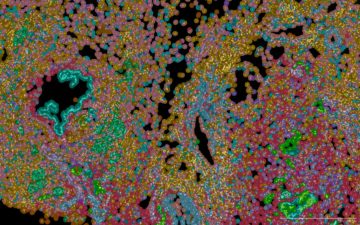 DNA mutations
DNA mutations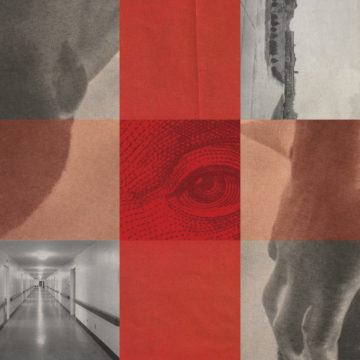 Nonprofit hospitals have been caught doing some surprising things, given how they are supposed to serve the public good in exchange for being exempt from federal, state and local taxes — exemptions that added up to
Nonprofit hospitals have been caught doing some surprising things, given how they are supposed to serve the public good in exchange for being exempt from federal, state and local taxes — exemptions that added up to 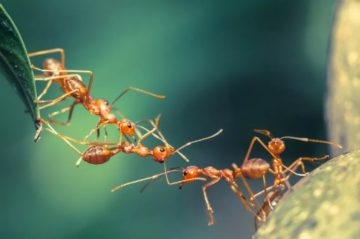 Biologists have discovered another incredible skill of ants that put humans to shame—they have a special technique to avoid traffic jams. Scientists from Texas Tech University and other institutions studied the 20-minute rhythms of the Leptothorax ant and discovered that their clever synchronization skills allowed them to avoid congestion. Their findings are published in a Proceedings of the Royal Society study.
Biologists have discovered another incredible skill of ants that put humans to shame—they have a special technique to avoid traffic jams. Scientists from Texas Tech University and other institutions studied the 20-minute rhythms of the Leptothorax ant and discovered that their clever synchronization skills allowed them to avoid congestion. Their findings are published in a Proceedings of the Royal Society study. On that gray February morning, the exhibit galleries smelled of perfumed wool and vibrated with a hushed reverence for Picasso’s creatures—two-legged, four-legged, winged, taloned, hooved. A man with a goat, a tiny horse with casters for feet, a girl jumping rope, Picasso’s ever-present Minotaur. And many, many women.
On that gray February morning, the exhibit galleries smelled of perfumed wool and vibrated with a hushed reverence for Picasso’s creatures—two-legged, four-legged, winged, taloned, hooved. A man with a goat, a tiny horse with casters for feet, a girl jumping rope, Picasso’s ever-present Minotaur. And many, many women.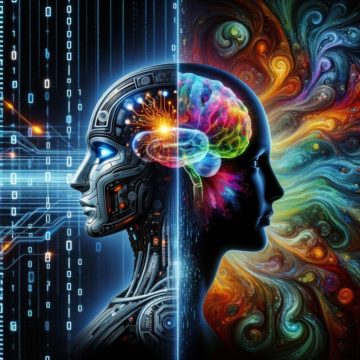 The Artificial Intelligence landscape is changing with remarkable speed these days, and the capability of Large Language Models in particular has led to speculation (and hope, and fear) that we could be on the verge of achieving
The Artificial Intelligence landscape is changing with remarkable speed these days, and the capability of Large Language Models in particular has led to speculation (and hope, and fear) that we could be on the verge of achieving 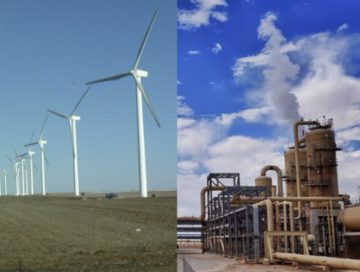 Henry Farrell: You’ve written a very influential
Henry Farrell: You’ve written a very influential  On the outskirts of Brandenburg an der Havel, Germany, nestled among car dealerships and hardware shops, sits a two-storey factory stuffed with solar-power secrets. It’s here where UK firm
On the outskirts of Brandenburg an der Havel, Germany, nestled among car dealerships and hardware shops, sits a two-storey factory stuffed with solar-power secrets. It’s here where UK firm  As we age, our memory declines. This is an ingrained assumption for many of us; however, according to neuroscientist Dr. Richard Restak, a neurologist and clinical professor at George Washington Hospital University School of Medicine and Health, decline is not inevitable. The author of more than 20 books on the mind, Dr. Restak has decades’ worth of experience in guiding patients with memory problems. “The Complete Guide to Memory: The Science of Strengthening Your Mind,” Dr. Restak’s latest book, includes tools such as mental exercises, sleep habits and diet that can help boost memory.
As we age, our memory declines. This is an ingrained assumption for many of us; however, according to neuroscientist Dr. Richard Restak, a neurologist and clinical professor at George Washington Hospital University School of Medicine and Health, decline is not inevitable. The author of more than 20 books on the mind, Dr. Restak has decades’ worth of experience in guiding patients with memory problems. “The Complete Guide to Memory: The Science of Strengthening Your Mind,” Dr. Restak’s latest book, includes tools such as mental exercises, sleep habits and diet that can help boost memory.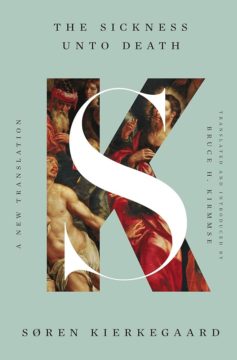 Even though Kierkegaard treats despair as a spiritual and existential condition rather than just a psychological state, The Sickness Unto Death sparkles with psychological insight. Especially compelling is his diagnosis of the different forms of despair that arise from an imbalance between the various pairs that make up the human synthesis (those first folds in our sheets of paper). Too much necessity, and we lose all imagination and hope—we cannot breathe; too much possibility, and we float airily, ineffectually, above our own lives. Too much finitude, and we lose ourselves in trivial things; too much infinitude, and we’re disconnected from the world. Since life is so rarely in balance, despair is the inevitable state—but understanding this, for Kierkegaard, opens up a renewed perspective on how to live with this inevitability.
Even though Kierkegaard treats despair as a spiritual and existential condition rather than just a psychological state, The Sickness Unto Death sparkles with psychological insight. Especially compelling is his diagnosis of the different forms of despair that arise from an imbalance between the various pairs that make up the human synthesis (those first folds in our sheets of paper). Too much necessity, and we lose all imagination and hope—we cannot breathe; too much possibility, and we float airily, ineffectually, above our own lives. Too much finitude, and we lose ourselves in trivial things; too much infinitude, and we’re disconnected from the world. Since life is so rarely in balance, despair is the inevitable state—but understanding this, for Kierkegaard, opens up a renewed perspective on how to live with this inevitability.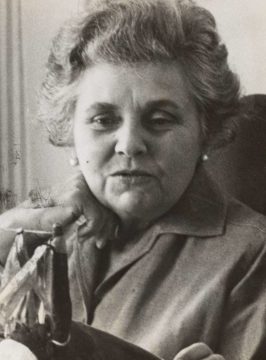 Elizabeth Bishop delighted in the postcard. It suited her poetic subject matter and her way of life—this poet of travel who was more often on the move than at home, “wherever that may be,” as she put it in her poem “Questions of Travel.” She told James Merrill in a postcard written in 1979 that she seldom wrote “anything of any value at the desk or in the room where I was supposed to be doing it—it’s always in someone else’s house, or in a bar, or standing up in the kitchen in the middle of the night.”
Elizabeth Bishop delighted in the postcard. It suited her poetic subject matter and her way of life—this poet of travel who was more often on the move than at home, “wherever that may be,” as she put it in her poem “Questions of Travel.” She told James Merrill in a postcard written in 1979 that she seldom wrote “anything of any value at the desk or in the room where I was supposed to be doing it—it’s always in someone else’s house, or in a bar, or standing up in the kitchen in the middle of the night.”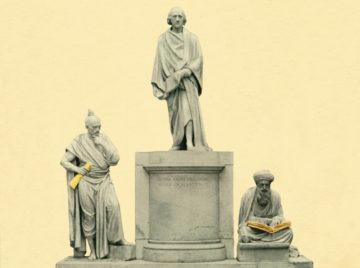 K
K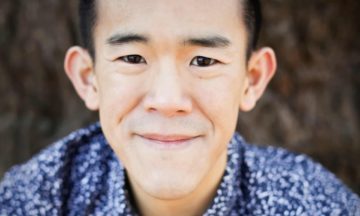 W
W Rather than focusing on how people and societies think and talk about morality, normative ethicists try to figure out which things are, simply, morally good or bad, and why. The philosophical sub-field of meta-ethics adopts, naturally, a ‘meta-’ perspective on the kinds of enquiry that normative ethicists engage in. It asks whether there are objectively correct answers to these questions about good or bad, or whether ethics is, rather, a realm of illusion or mere opinion.
Rather than focusing on how people and societies think and talk about morality, normative ethicists try to figure out which things are, simply, morally good or bad, and why. The philosophical sub-field of meta-ethics adopts, naturally, a ‘meta-’ perspective on the kinds of enquiry that normative ethicists engage in. It asks whether there are objectively correct answers to these questions about good or bad, or whether ethics is, rather, a realm of illusion or mere opinion.